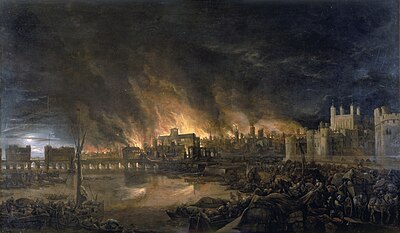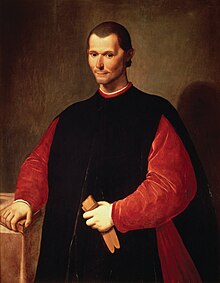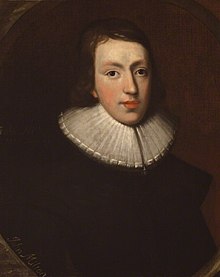
Lisa Jardine
Centenary Professor of Renaissance Studies at Queen Mary, University of London
8 episodes
Appears in multiple episodes with: Stephen Pumfrey
Covers topics in categories such as:
The Fire of London
Melvyn Bragg and guests discuss The Great Fire of London in 1666 and how the city rose from the ashes.
11 December 2008
Also featuring: Vanessa Harding, Jonathan Sawday
The Royal Society
Melvyn Bragg discusses how the formation of the Royal Society heralded the dawning of a new scientific era in the 17th century.
23 March 2006
Also featuring: Stephen Pumfrey, Michael Hunter
ScienceSocial history of the United KingdomLearned societies of the United Kingdom, Members of the International Council for Science, Members of the International Science Council, National academies of sciences, Non-profit organisations based in London, Organisations based in London with royal patronage, Organizations associated with the COVID-19 pandemic, Professional associations based in the United Kingdom, Scientific organizations established in 16601660 establishments in EnglandRoyal SocietyMachiavelli and the Italian City States
Melvyn Bragg discusses the political philosopher Niccolo Machiavelli. Inspired by the model of Cesare Borgia, he wrote a notorious manual of power still read today.
9 December 2004
Also featuring: Quentin Skinner, Evelyn Welch
Zero
Melvyn Bragg discusses the history of the number between 1 and -1, which has strange and uniquely beguiling qualities. How was zero invented and what role does it play in mathematics today?
13 May 2004
Also featuring: Robert Kaplan, Ian Stewart
Cryptography
Melvyn Bragg discusses the history of codes including the Caesar cipher, the ‘uncrackable’ Vigenere code, the Enigma machine and the cryptography that underwrites the information age.
29 January 2004
Also featuring: Simon Singh, Fred Piper
Milton
Melvyn Bragg examines the literary and political career of the 17th century poet John Milton, examining work such as Paradise Lost as well as his role as propagandist during the English Civil War.
7 March 2002
Also featuring: John Carey, Blair Worden
Mythopoeic writersChristian humanistsBlind writersEnglish male dramatists and playwrightsPeople from the City of LondonLiteracy and society theorists17th-century English dramatists and playwrights17th-century English philosophersEnglish writers with disabilitiesBritish philosophers of religionPamphleteersNeoclassical writersRhetoriciansBritish free speech activistsEpic poetsChristian poetsSocial philosophersMale essayistsAnglican poetsDeaths from kidney failure in the United KingdomMetaphor theoristsEnglish DissentersRhetoric theoristsAlumni of Christ's College, Cambridge17th-century writers in LatinLiterary theoristsCritics of the Catholic ChurchEnglish male poets17th-century English writersEnglish theologians17th-century English poetsEnglish Anglican theologiansWriters from LondonAnti-Catholicism in the United KingdomBlind poetsCalvinist and Reformed poetsSonneteersAnglican philosophers17th-century English educatorsEnglish essayistsEnglish political philosophersEnlightenment philosophersEnglish educational theoristsWriters about activism and social changeEnglish non-fiction writersEnglish republicans17th-century English male writers







